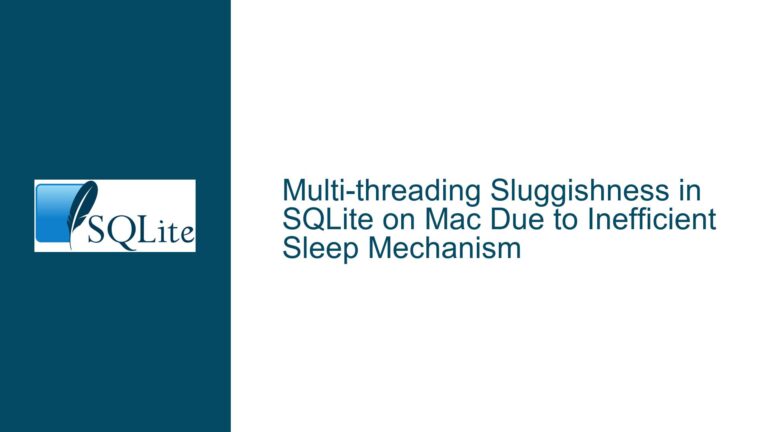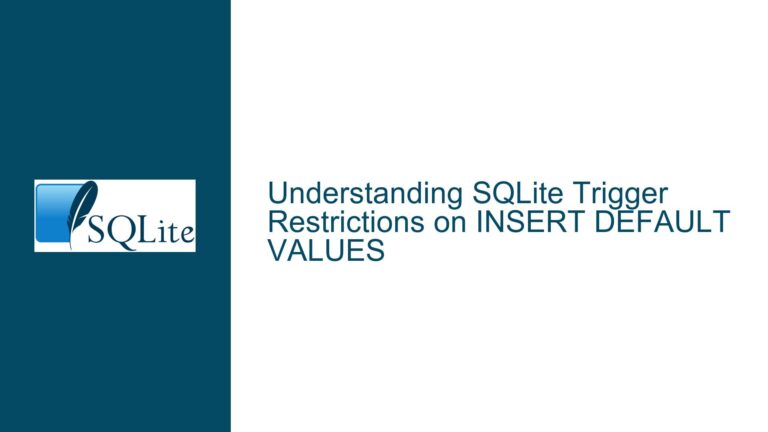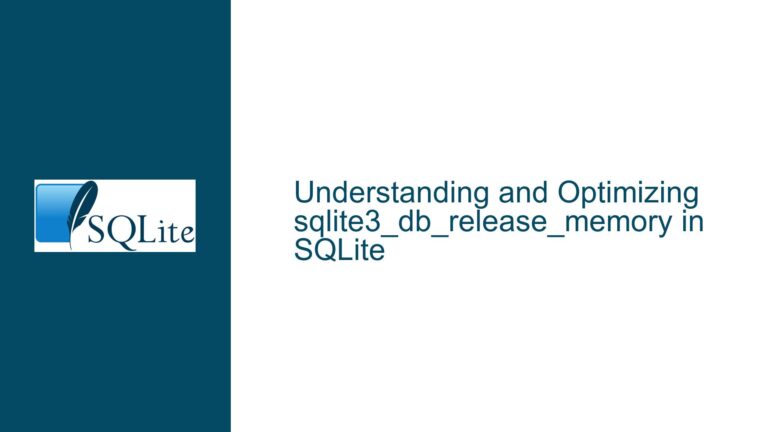Optimizing SQLite Memory Allocation in ParseCleanup Function
Memory Allocation Overhead in SQLite’s ParseCleanup Mechanism The core issue revolves around the memory allocation strategy used in SQLite’s sqlite3ParserAddCleanup function, which is responsible for managing cleanup tasks after parsing SQL statements. The original implementation allocates memory for each individual cleanup task, leading to potential inefficiencies due to frequent calls to sqlite3DbMallocRaw. This can result…









